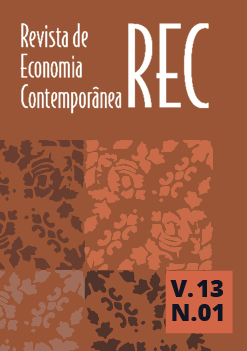TRABALHO REPRODUTIVO NO BRASIL: QUEM FAZ? // WHO DOES REPRODUCTIVE WORK IN BRAZIL?
Keywords:
reprodutivo, afazeres domésticos, invisibilidade do trabalho feminino // reproductive work, invisibility of female workAbstract
RESUMO: Este artigo tem como objetivo analisar quem são as pessoas que realizam as tarefas de reprodução social sem remuneração, de enorme importância na reprodução da vida e no bem-estar da sociedade. Esses serviços são realizados majoritariamente por mulheres, e por não gerarem renda, têm contribuído para reforçar a subestimação das atividades realizadas por elas na sociedade. Este artigo tem como objetivo desvelar essa questão, através da análise do trabalho reprodutivo feminino, a partir dos microdados da PNAD/IBGE. Quem são? Quanto tempo dedicam a essas tarefas as pessoas que realizam o trabalho reprodutivo? Nossos resultados indicam que, sejam analfabetas ou tenham educação superior, seja qual for o tipo de contrato que possuam no emprego, sejam ocupadas ou estejam fora do mercado de trabalho, todas as mulheres têm uma carga elevada na execução desses trabalhos.
ABSTRACT: This paper aims to analyse who are the people who do unpaid tasks for social reproduction, central to the reproduction of life and of societal well-being. These jobs are mostly done by women and, since they do not generate income, have reinforced the underestimate women’s activities in society. This paper aims to unveil this issue through the analysis of female reproductive work, based on micro-data from PNAD/IBGE. Who are the people doing reproductive work, and how much time they devote to these tasks? Our results indicate that, whether illiterate or college graduates, whatever the type of employment contract they have, whether occupied or out of the labour market, all women take a heavy load in the execution of these tasks.


